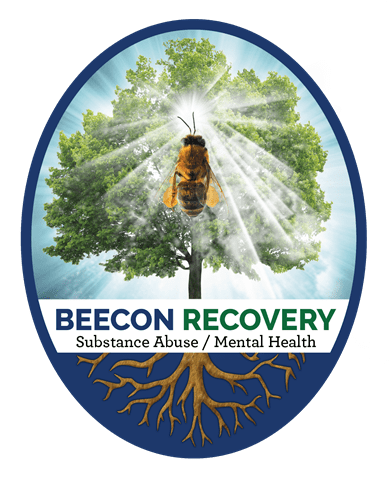The Importance of Case Management
Transforming Lives Through Care
At Beecon Recovery, we understand the transformative power of case management in addiction recovery and mental health treatment. Case management is a collaborative process that assesses, plans, implements, and monitors the options and services required to meet clients’ health and human services needs (Bonterra Tech). By using case management to navigate multiple levels of care, we can provide individualized support that addresses the unique needs of each client.
Our approach to case management involves patient identification, eligibility determination, assessment, care planning, goal setting, plan implementation, plan monitoring, transition, and discharge (NCBI Bookshelf). This comprehensive process ensures that clients receive the appropriate level of care at each stage of their recovery journey. For more information on the different levels of care, visit our articles on what is the difference between php iop and opt in addiction treatment and when is a partial hospitalization program (php) the right choice?.
Core Principles of Case Management
The core principles of case management at Beecon Recovery include protecting clients and making services and interventions more impactful. These principles contribute to the success of the entire community and deliver positive outcomes for clients (Bonterra Tech). Our case management process is designed to ensure that clients receive the highest quality of care and support throughout their recovery journey.
Key principles of our case management approach include:
- Individualized Care: Tailoring services to meet the specific needs of each client.
- Collaboration: Working with a multi-disciplinary team to provide comprehensive support.
- Continuous Monitoring: Regularly assessing and adjusting care plans to ensure optimal outcomes.
- Client Empowerment: Encouraging clients to take an active role in their recovery process.
By adhering to these principles, we can help clients achieve lasting recovery and improved mental health. For more information on how we support clients through each phase of their treatment journey, visit our article on what to expect during each phase of your treatment journey.
Our commitment to using case management to navigate multiple levels of care ensures that clients receive the right support at the right time. This approach not only enhances the quality of care but also helps to reduce costs and improve overall healthcare outcomes. For more details on the benefits of stepping down from PHP to IOP, visit our article on benefits of stepping down from php to iop.
By focusing on the importance of case management, we can provide comprehensive support that transforms lives and promotes long-term recovery. For additional resources on maintaining progress between outpatient sessions, visit our article on how to maintain progress between outpatient sessions.
Components of Case Management
Intake and Assessment
At Beecon Recovery, our approach to using case management to navigate multiple levels of care begins with a thorough intake and assessment process. This initial step involves patient identification, eligibility determination, and a comprehensive assessment of the individual’s needs. By understanding the unique circumstances and challenges faced by each client, we can develop a tailored care plan that addresses their specific requirements.
The intake and assessment phase is crucial for setting the foundation of the case management process. It allows us to gather essential information about the client’s medical history, mental health status, and any co-occurring disorders. This data is vital for creating an effective treatment plan that aligns with the client’s goals and ensures they receive the appropriate level of care.
Risk Evaluation and Planning
Following the intake and assessment, we move on to risk evaluation and planning. This component of case management involves identifying potential risks and developing strategies to mitigate them. By conducting a thorough risk evaluation, we can anticipate challenges that may arise during the treatment process and proactively address them.
Service planning is an integral part of this phase. It involves setting clear, achievable goals for the client and outlining the steps needed to reach those goals. Our team collaborates with the client to create a personalized plan that includes specific interventions, therapies, and support services. This collaborative approach ensures that the client is actively involved in their recovery journey and has a clear understanding of the path ahead.
Monitoring and Evaluation
Continuous monitoring and evaluation are essential for ensuring the effectiveness of the case management process. At Beecon Recovery, we regularly assess the client’s progress toward their goals and make necessary adjustments to the treatment plan. This ongoing evaluation helps us identify any obstacles that may hinder the client’s progress and implement strategies to overcome them.
Monitoring and evaluation involve tracking both output and outcome metrics defined in the service planning stage. By continuously assessing these metrics, we can measure the impact of our programs and services on the client’s recovery journey. This data-driven approach allows us to make informed decisions and optimize the care provided to each client.
| Component | Description |
|---|---|
| Intake and Assessment | Patient identification, eligibility determination, comprehensive assessment |
| Risk Evaluation and Planning | Identifying risks, developing strategies, setting goals, service planning |
| Monitoring and Evaluation | Continuous assessment, tracking progress, adjusting treatment plans |
For more information on how clinical assessments determine your level of care, visit our article on how clinical assessments determine your level of care. Additionally, learn about the benefits of stepping down from PHP to IOP in our article on benefits of stepping down from php to iop.
By understanding and implementing these components of case management, we can provide comprehensive support to our clients, helping them navigate multiple levels of care and achieve lasting recovery.
Case Management Process
Establishing Client Goals
At Beecon Recovery, we understand the importance of setting clear and achievable goals for our clients. Establishing client goals is the first step in using case management to navigate multiple levels of care. During this stage, our case managers work closely with clients to identify their unique needs and aspirations. This collaborative approach ensures that the goals are personalized and aligned with the client’s recovery journey.
Our case managers use a comprehensive assessment to gather information about the client’s medical history, mental health status, and social circumstances. This data helps in formulating specific, measurable, attainable, relevant, and time-bound (SMART) goals. By setting these goals, we provide a clear direction for the client’s treatment plan and create a roadmap for their recovery.
Drafting Management Plans
Once the client goals are established, the next step is to draft a detailed management plan. This plan outlines the actionable steps needed to achieve the set goals and includes a timeline for monitoring and supervision. According to Bonterra Tech, a well-structured management plan is crucial for effective case management.
Our management plans are tailored to each client’s needs and may include various levels of care, such as Partial Hospitalization Programs (PHP), Intensive Outpatient Programs (IOP), and General Outpatient Treatment (OPT). The plan also specifies the roles and responsibilities of the client, case manager, and other healthcare providers involved in the treatment process.
| Plan Component | Description |
|---|---|
| Goals | Specific objectives based on client needs |
| Action Steps | Detailed steps to achieve goals |
| Timeline | Schedule for monitoring and evaluation |
| Roles | Responsibilities of client and providers |
Continuous Monitoring
Continuous monitoring is a critical aspect of the case management process. It involves regularly assessing the client’s progress towards their goals and making necessary adjustments to the management plan. This ongoing evaluation ensures that the client remains on track and receives the appropriate level of care at each stage of their recovery.
Our case managers use various tools and techniques to monitor progress, including regular check-ins, progress reports, and feedback from the client and their support network. This information helps in identifying any barriers to progress and addressing them promptly. For more details on maintaining progress, visit our article on how to maintain progress between outpatient sessions.
By continuously monitoring and adjusting the management plan, we ensure that our clients receive the comprehensive support they need to achieve their recovery goals. This dynamic approach to case management allows us to provide high-quality care and optimize healthcare outcomes for our clients.
For more information on the different levels of care and how they fit into the case management process, explore our articles on what is the difference between php iop and opt in addiction treatment and benefits of stepping down from php to iop.
Optimizing Healthcare Outcomes
Effective Cost Reduction
Using case management to navigate multiple levels of care is essential for optimizing healthcare outcomes and reducing costs. Approximately 10% of patients account for around 70% of all healthcare expenditures, with 5% of emergency department patients accounting for 30 to 50% of emergency department visits (NCBI Bookshelf). This highlights the need for effective case management to manage these high-cost patients efficiently.
Case management helps in coordinating services, which is increasingly seen as a strategy to enhance service quality and outcomes while reducing costs. Intensive case management (ICM) has shown small positive effects on housing outcomes, reductions in substance use, and mixed effects on mental health outcomes. ICM is associated with reduced emergency department visits and improvements in income outcomes, making it cost-effective when considering all costs and benefits to society (NCBI).
| Metric | Standard Case Management | Intensive Case Management |
|---|---|---|
| Emergency Department Visits | High | Reduced |
| Substance Use | Limited Effect | Reduced |
| Housing Stability | Limited Effect | Improved |
| Cost-Effectiveness | Lower | Higher |
Enhancing Service Quality
Case management is crucial for enhancing the quality of services provided to patients. Amid constraints on public and private funding for various services, coordination through case management ensures that patients receive comprehensive and continuous care. This approach is particularly beneficial for individuals with complex needs, such as those requiring addiction recovery and mental health treatment.
Standard case management interventions have shown limited and short-term effects on substance use and housing outcomes. However, intensive case management substantially reduces the number of days spent homeless and substance/alcohol use. Critical time interventions and assertive community treatment have protective effects on rehospitalizations and promising effects on housing stability (NCBI).
For those navigating multiple levels of care, such as transitioning from inpatient to outpatient services, case management ensures a seamless transition and continuous support. This is vital for maintaining progress and preventing relapse. For more information on transitioning between levels of care, visit our article on transitioning from inpatient to outpatient: what you need to know.
By leveraging case management, we can provide personalized care plans that address the unique needs of each patient. This includes setting realistic goals, drafting management plans, and continuously monitoring progress. For a deeper understanding of how clinical assessments determine your level of care, check out our article on how clinical assessments determine your level of care.
In summary, using case management to navigate multiple levels of care not only reduces costs but also enhances the quality of services provided. This comprehensive approach ensures that patients receive the support they need to achieve optimal health outcomes.
Case Management in Healthcare
Patient Identification and Care Planning
At Beecon Recovery, we understand the importance of using case management to navigate multiple levels of care. Our approach begins with patient identification and care planning, ensuring that each individual receives the comprehensive support they need. Case management involves several key steps, including eligibility determination, assessment, care planning, goal setting, plan implementation, monitoring, transition, and discharge (NCBI Bookshelf). This thorough process allows us to provide tailored care that addresses the unique needs of each patient.
We utilize case management across various healthcare settings, including health insurers, hospitals, health systems, physician practices, and community health organizations. This versatility ensures that we can cater to broad populations with chronic conditions or specific clinical circumstances (NCBI Bookshelf). Our comprehensive approach includes activities such as case finding, establishing rapport, navigation, coordination, evaluation, advocacy, and community service development.
| Case Management Steps | Description |
|---|---|
| Patient Identification | Identifying individuals who need case management services |
| Eligibility Determination | Assessing if the patient qualifies for specific services |
| Assessment | Evaluating the patient’s needs and conditions |
| Care Planning | Developing a personalized care plan |
| Goal Setting | Establishing achievable goals for the patient |
| Plan Implementation | Putting the care plan into action |
| Monitoring | Continuously tracking the patient’s progress |
| Transition | Assisting the patient in moving between different levels of care |
| Discharge | Ensuring a smooth transition out of the care system |
For more information on how clinical assessments determine your level of care, visit our article on how clinical assessments determine your level of care.
Multi-disciplinary Collaboration
Effective case management relies on multi-disciplinary collaboration. At Beecon Recovery, we bring together a team of professionals, including nurses, social workers, occupational therapists, psychologists, and other specialists, to develop inclusive care plans for our patients. This collaborative approach is essential for providing comprehensive care and support, especially for those with chronic conditions (NCBI Bookshelf).
Our team members communicate and work together to ensure that each patient’s needs are met. Clinical experience is crucial for effective case management, and we prioritize having a highly skilled team with advanced degrees and specialized training (NCBI Bookshelf). This multi-disciplinary teamwork allows us to address the complex needs of our patients and provide the highest quality of care.
For more insights on transitioning between different levels of care, check out our articles on transitioning from inpatient to outpatient: what you need to know and benefits of stepping down from php to iop.
By leveraging the strengths of our diverse team and following a structured case management process, we ensure that our patients receive the best possible care and support throughout their recovery journey.
Social Work Case Management
Developing Support Systems
At Beecon Recovery, we understand the importance of using case management to navigate multiple levels of care. Our social work case managers are trained to develop and improve support systems that advance the well-being of individuals, families, and communities. This involves engaging clients in an ongoing information-gathering and decision-making process to help them identify their goals, strengths, and challenges.
Our approach includes:
- Assessment: Evaluating the client’s needs, strengths, and resources.
- Planning: Developing a comprehensive plan that addresses the client’s goals.
- Implementation: Coordinating services and resources to execute the plan.
- Monitoring: Continuously assessing the effectiveness of the plan and making necessary adjustments.
This collaborative approach ensures that clients receive personalized care tailored to their unique circumstances. For more information on how clinical assessments determine your level of care, visit our article on how clinical assessments determine your level of care.
Therapeutic Relationships
The therapeutic relationship between the practitioner and the client plays a crucial role in case management. At Beecon Recovery, we prioritize building strong, trusting relationships with our clients. This relationship is the foundation for effective case management and is essential for achieving positive outcomes.
Key elements of our therapeutic relationships include:
- Trust: Establishing a safe and supportive environment where clients feel comfortable sharing their experiences and challenges.
- Empathy: Demonstrating understanding and compassion for the client’s situation.
- Collaboration: Working together with clients to set goals and develop strategies for achieving them.
- Advocacy: Supporting clients in accessing the resources and services they need.
By fostering these therapeutic relationships, we position our social workers as leaders in the field, capable of guiding clients through their recovery journey. For more insights on what to expect during each phase of your treatment journey, visit our article on what to expect during each phase of your treatment journey.
Our commitment to developing support systems and building therapeutic relationships ensures that our clients receive comprehensive and compassionate care. This approach not only addresses immediate needs but also promotes long-term recovery and well-being. For additional information on transitioning from inpatient to outpatient care, visit our article on transitioning from inpatient to outpatient: what you need to know.






